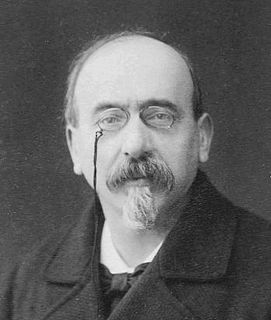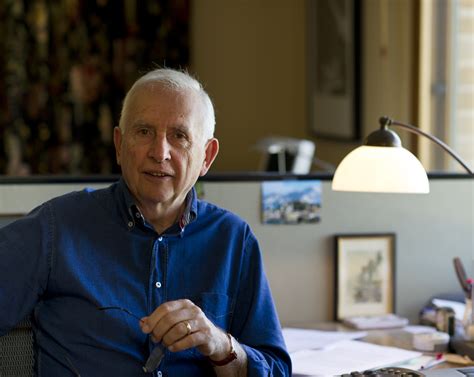A Quote by Jean Baudrillard
Perhaps our eyes are merely a blank film which is taken from us after our deaths to be developed elsewhere and screened as our life story in some infernal cinema or dispatched as microfilm into the sidereal void.
Related Quotes
How often do we tell our own life story? How often do we adjust, embellish, make sly cuts? And the longer life goes on, the fewer are those around to challenge our account, to remind us that our life is not our life, merely the story we have told about our life. Told to others, but — mainly — to ourselves.
But if, indeed, there be a nobler life in us than in these strangely moving atoms; if, indeed, there is an eternal difference between the fire which inhabits them, and that which animates us,--it must be shown, by each of us in his appointed place, not merely in the patience, but in the activity of our hope, not merely by our desire, but our labor, for the time when the dust of the generations of men shall be confirmed for foundations of the gates of the city of God.
One of the most important responsibilities of leaders in any setting - including business organisations - is to tell us our own story; to explain us to ourselves; to help us weave some meaning and purpose into the fabric of our lives; to illuminate our understanding of where we have come from; to paint word pictures of our future onto which we can project our aspirations.
If we wish to know about a man, we ask 'what is his story--his real, inmost story?'--for each of us is a biography, a story. Each of us is a singular narrative, which is constructed, continually, unconsciously, by, through, and in us--through our perceptions, our feelings, our thoughts, our actions; and, not least, our discourse, our spoken narrations. Biologically, physiologically, we are not so different from each other; historically, as narratives--we are each of us unique.
Every time you have a desire, in a certain sense you have a goal, something you would like to be, do, or have. Some desires are merely passing fancies, but others stay with us and go deeper. Our desires and our goals give us direction and focus. They help point us down our path of action in our life.
Perhaps all our loves are merely hints and symbols; vagabond-language scrawled on gate-posts and paving-stones along the weary road that others have tramped before us; perhaps you and I are types and this sadness which sometimes falls between us springs from disappointment in our search, each straining through and beyond the other, snatching a glimpse now and then of the shadow which turns the corner always a pace or two ahead of us.
Avatar is the most high tech film in terms of its execution, dealing with essentially a very low tech subject; which is our relationship with nature...and in fact the irony is that the film is about our relationship with nature and how our technological civilization has taken us several removes away from a truly natural existence and the consequences of that to us.
Evolution is the fundamental idea in all of life science, in all of biology. The key to our being here now is time, 4.54 billion (Earth) years of time. Nuclear fission wasn't discovered until long after Charles Darwin and Alfred Russell Wallace published their original books and papers, for example. Our ability to measure atomic masses wasn't developed until long after their deaths. These features of nature enabled us to reckon the age of the Earth and compare it with speciation rates here.
Among the older records, we find chapter after chapter of which we can read the characters, and make out their meaning: and as we approach the period of man's creation, our book becomes more clear, and nature seems to speak to us in language so like our own, that we easily comprehend it. But just as we begin to enter on the history of physical changes going on before our eyes, and in which we ourselves bear a part, our chronicle seems to fail us-a leaf has been torn out from nature's record, and the succession of events is almost hidden from our eyes.
Perhaps in the back of our minds we already understand, without all the science I've discussed, that something terribly wrong is happening. Our sustenance now comes from misery. We know that if someone offers to show us a film on how our meat is produced, it will be a horror film. We perhaps know more than we care to admit, keeping it down in the dark places of our memory-- disavowed. When we eat factory-farmed meat we live, literally, on tortured flesh. Increasingly, that tortured flesh is becoming our own.






































